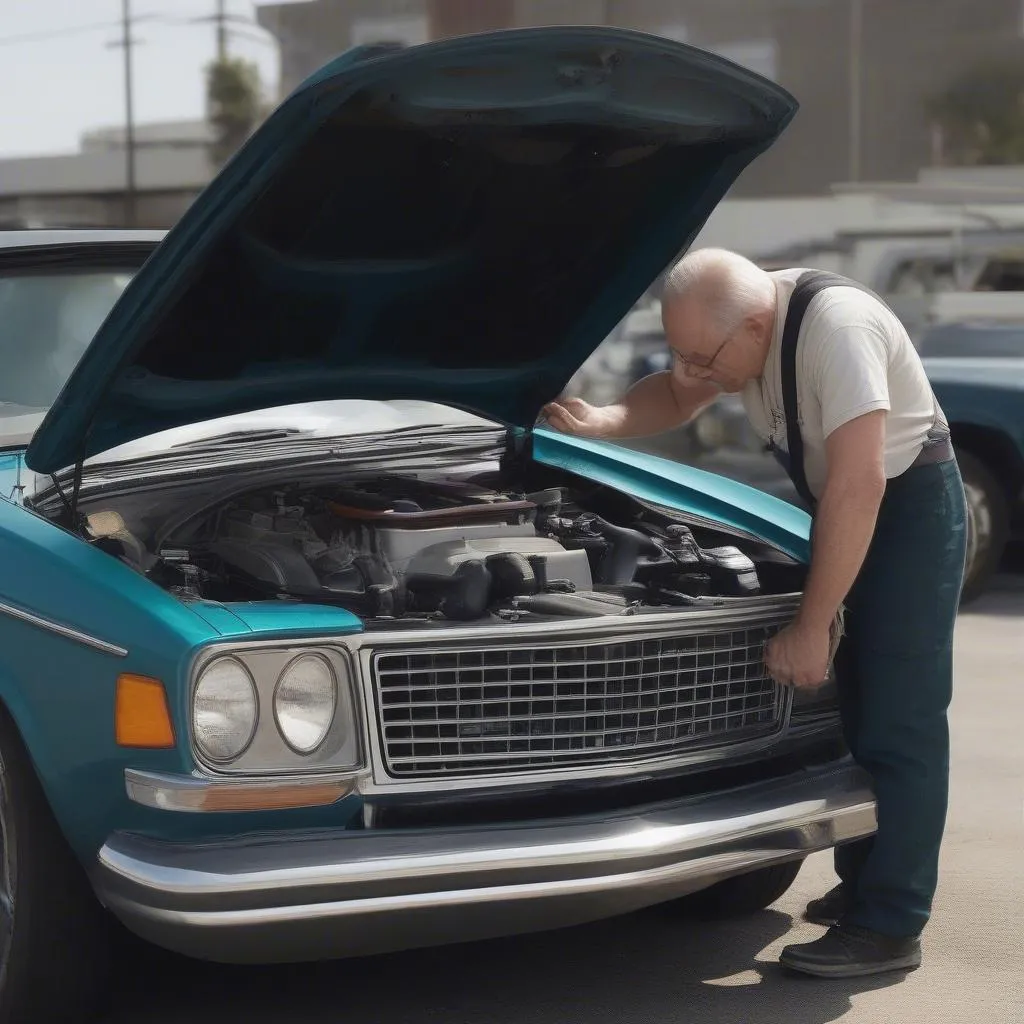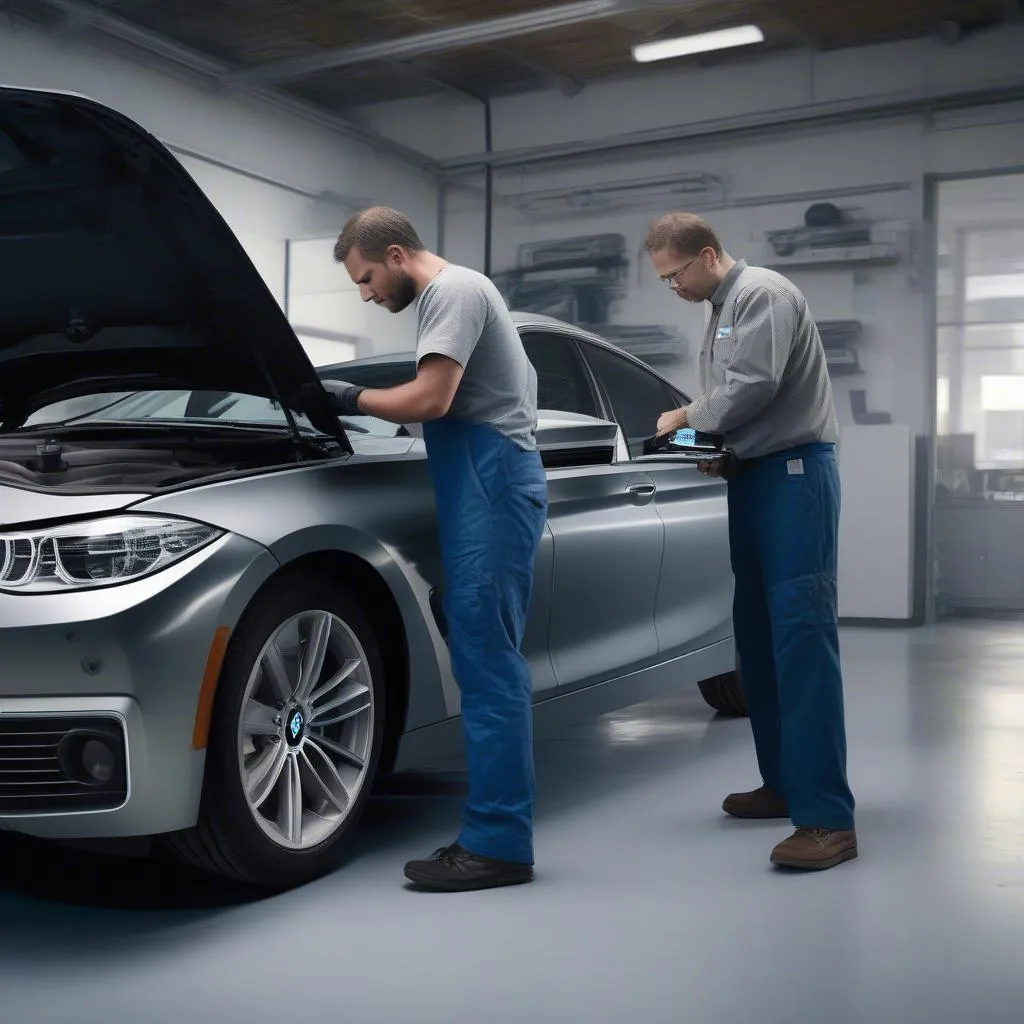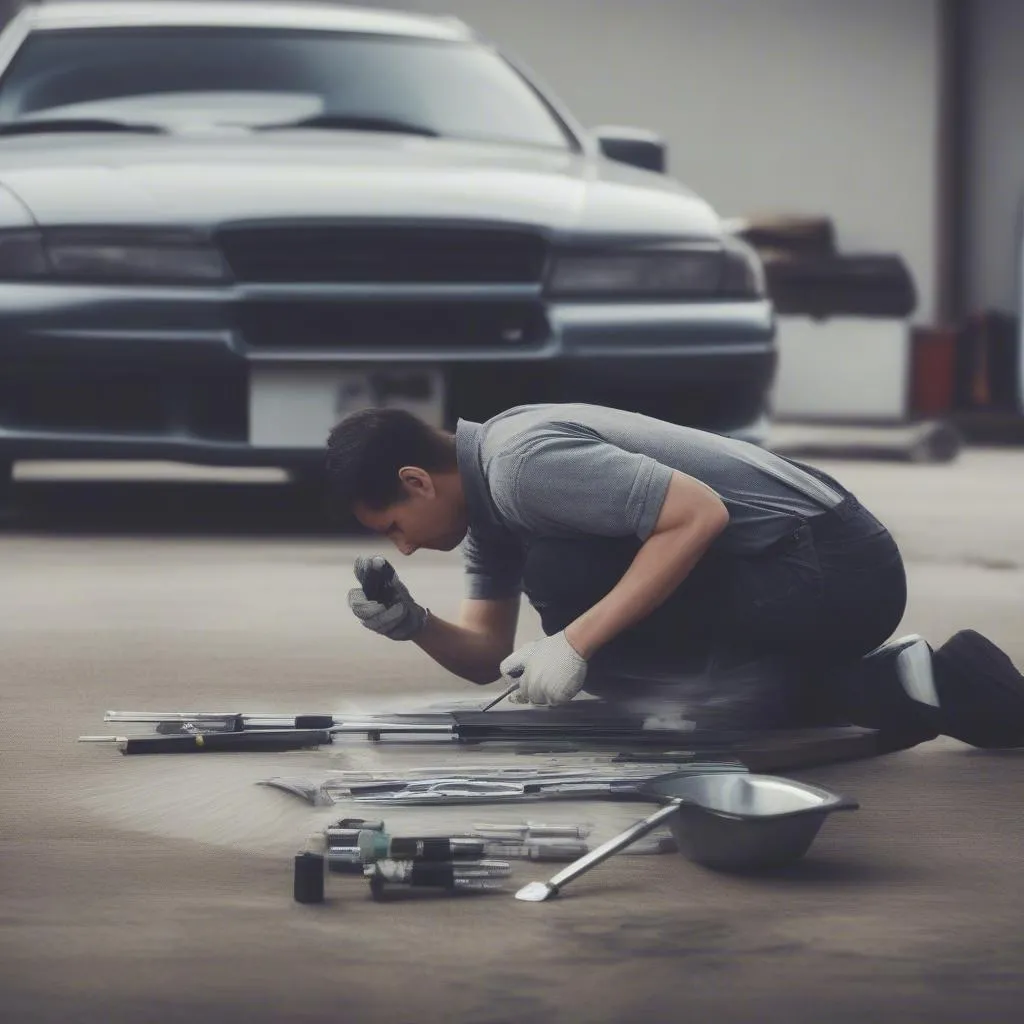It’s the worst feeling. You’re driving along, and suddenly your car starts making a strange noise. You check the dashboard, and a warning light flashes. You pull over, and your heart sinks. What’s wrong with your car? You know you need to get it fixed, but you’re not sure what’s going on.
Understanding the Significance of the Question: “What’s Wrong With My Car?”
The question, “What’s wrong with my car?” is a universal concern for anyone who owns a car. It’s a question that carries significant weight, not just from a mechanical perspective, but also from a financial and logistical standpoint. A car is a significant investment, and any issues can mean costly repairs and potential downtime.
From a technical standpoint, understanding the root cause of a car problem is crucial for effective troubleshooting and repair. Mechanics rely on diagnostic tools, like Dealer Scanners specifically designed for European cars, to isolate the problem and ensure the correct repair is performed.
Decoding the Problem: Common Causes and Troubleshooting Tips
Warning Lights: The Car’s SOS Signal
Many modern vehicles come equipped with a sophisticated array of warning lights on the dashboard. Each light is a visual cue that something might be amiss.
-
Engine Light (Check Engine Light): This is the most common warning light you’ll encounter. It usually signifies an issue with the engine’s emissions system, but it can also indicate a broader range of problems.
-
ABS Light: This light indicates a problem with the Anti-lock Braking System (ABS). It’s important to get this checked out as soon as possible, as a malfunctioning ABS system can compromise your braking ability, especially in emergency situations.
-
Airbag Light: This light indicates a problem with the airbag system, a vital safety feature. Get this checked immediately.
Strange Noises and Sounds
Your car is a symphony of sounds. However, any unusual noises are a red flag.
-
Grinding or Screeching: This could indicate issues with your brakes, like worn brake pads or rotors.
-
Clicking or Tapping: This might be a sign of a loose component or a problem with the suspension.
-
Whining or Humming: This might suggest a problem with the transmission or bearings.
Other Common Car Problems
-
Battery Issues: A dead battery is a common problem. Make sure your battery terminals are clean and tight, and if the battery is old, consider getting a new one.
-
Fuel Issues: A problem with your fuel system can cause your car to run poorly or stall.
-
Electrical Problems: A multitude of electrical problems can arise, such as faulty wiring, a bad alternator, or a faulty starter motor.
What to Do:
If you’re experiencing any of these problems, it’s best to take your car to a trusted mechanic for diagnosis. A qualified mechanic will use specialized tools and techniques to determine the root cause of the issue and advise you on the best course of action.
Using a Dealer Scanner for European Cars:
To accurately diagnose and troubleshoot the majority of modern cars, especially European makes, mechanics rely on advanced diagnostic tools like Dealer Scanners. These specialized scanners are able to read the car’s internal data, like fault codes, which can be essential for pinpointing the source of the problem.
Example: Let’s say you’re driving a BMW, and the Check Engine light is illuminated. By plugging in a Dealer Scanner designed for BMWs, a mechanic can retrieve specific fault codes related to the BMW’s engine control unit (ECU). These codes provide invaluable information that helps narrow down the possible causes and ensure a timely and efficient repair.
Common Questions About Car Problems
- Why is my car making a clicking noise? A clicking noise can have several causes, such as a problem with the suspension, a loose component in the engine, or a malfunctioning starter motor.
- Why is my car not starting? Several factors can prevent a car from starting, including a dead battery, a faulty starter motor, or a problem with the fuel system.
- What does it mean when the engine light comes on? The engine light, often referred to as the Check Engine light, can indicate a range of issues, from a loose gas cap to a more serious engine problem.
Staying Ahead of the Curve: Preventive Maintenance
The best way to avoid major car problems is to practice preventative maintenance. This includes:
- Regular Oil Changes: Essential for keeping your engine lubricated and running smoothly.
- Tire Rotation and Maintenance: Ensuring even wear and optimal performance.
- Fluid Checks: Maintaining the correct fluid levels in your car’s systems.
- Air Filter Replacement: A clean air filter improves engine performance.
Conclusion:
While it’s impossible to completely eliminate the possibility of car problems, being aware of common issues and practicing preventive maintenance can help minimize surprises and ensure your car stays on the road. If you’re ever unsure about what’s wrong with your car, don’t hesitate to consult a professional mechanic.
Got Questions? Contact us via Whatsapp: +84767531508 for expert car diagnostics and repair advice. We’re here to help keep your car running smoothly.
 car-problems-diagnosis
car-problems-diagnosis
 dealer-scanner-bmw
dealer-scanner-bmw
 car-maintenance-checklist
car-maintenance-checklist